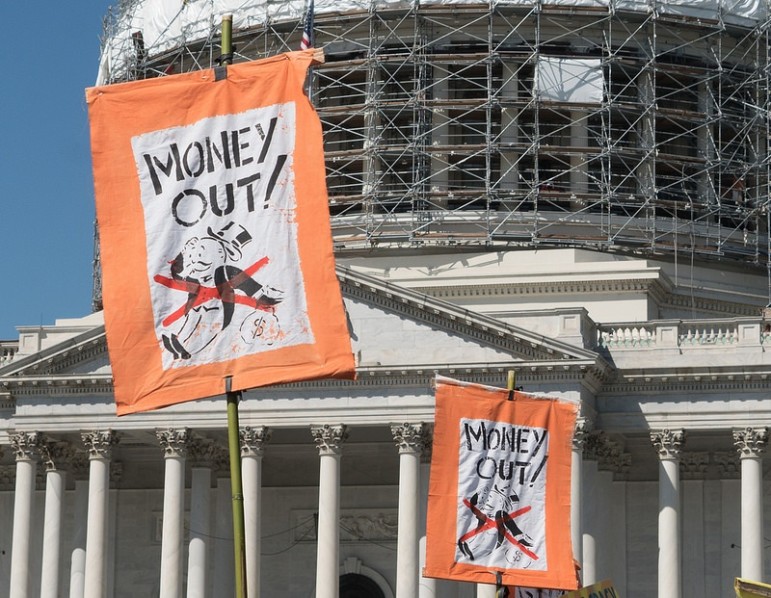
April 18, 2016; The Hill
The Democracy Spring and Democracy Awakening protests at the nation’s capital between April 11th and 18th were billed by some as the next generation of Occupy activity, They started with a 140-mile, ten-day walk from Philadelphia, and have resulted in 1,317 arrests, as nonviolent demonstrators staged daily events, each dedicated to another issue, and refused to move despite police requests. The media was out in full force on the event, but their big stories’ headlines were about the arrests of various celebrities.
But amid the high profile participants present, like ice cream impresarios Ben and Jerry, actress Rosario Dawson, and former presidential candidate Lawrence Lessig, was an enormous swath of the activist wing of the nonprofit sector. These included Greenpeace, the Sierra Club, the NAACP, NOW, and an impressive coalition of nonprofits working on multiple issues like labor, peace and racial justice, as you can see here and here.
Sign up for our free newsletters
Subscribe to NPQ's newsletters to have our top stories delivered directly to your inbox.
By signing up, you agree to our privacy policy and terms of use, and to receive messages from NPQ and our partners.
For those organized by Democracy Awakening, their common agenda was to advocate for:
- Fair consideration of the nominee to fill the Supreme Court vacancy, including timely hearings and a vote by the full Senate.
- The Voting Rights Advancement Act (H.R. 2867, S. 1659), legislation that would restore the protections against voting discrimination that were struck down by the U.S. Supreme Court in its Shelby County v. Holder decision and make additional critical updates to the Voting Rights Act of 1965.
- The Voter Empowerment Act (H.R. 12), legislation to modernize voter registration, prevent deceptive practices that keep people from the ballot box, and ensure equal access to voting for all.
- The Democracy For All Amendment (H.J.Res. 22, S.J.Res. 5), a constitutional amendment that would overturn U.S. Supreme Court decisions like Citizens United and allow elected representatives to set common-sense limits on money in elections.
- The Government By the People Act/Fair Elections Now Act (H.R. 20 and S. 1538), a small donor empowerment measure that would encourage and amplify small contributions from everyday Americans.
Democracy Spring’s agenda was similar, advocating for four bills already before Congress. Their goals are laid out in Vox, here.
In a sector that is sometimes slow to cross boundaries in common cause, the coalition’s breadth is worth noting and celebrating, especially in that the common cause is the state of democracy. Because, after all, that is the business of our sector.—Ruth McCambridge













